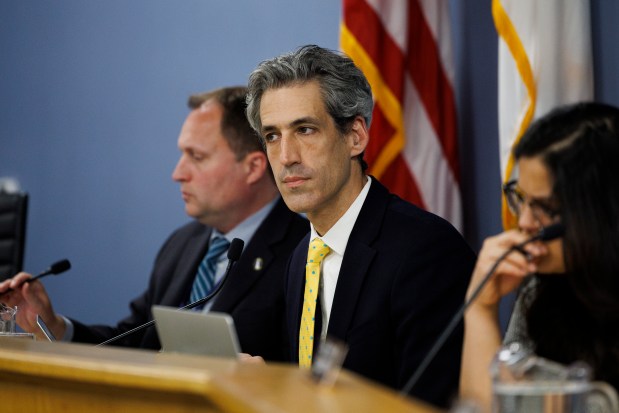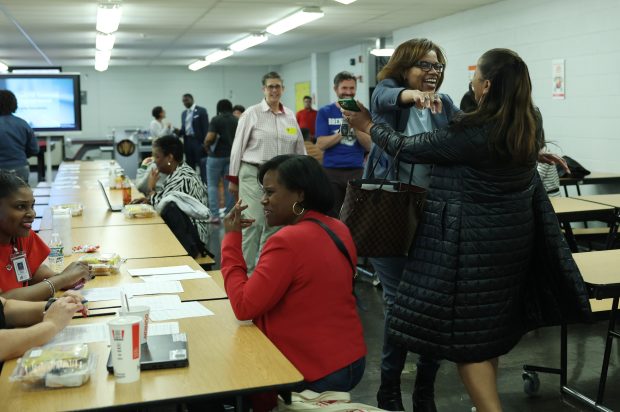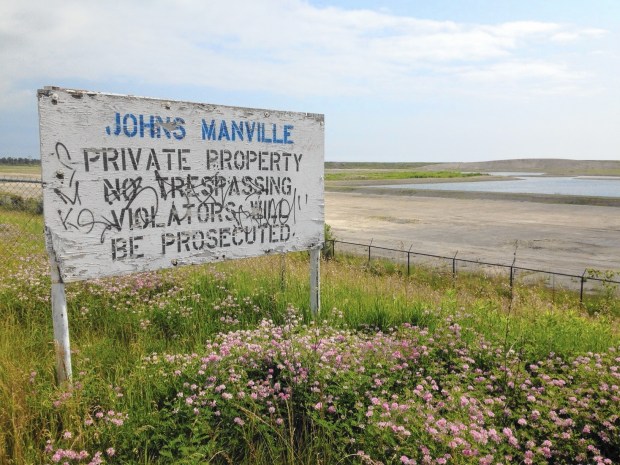Though Evanston voters heartily approved a 2022 referendum to adopt ranked choice voting, also called instant runoff voting, starting with its April 2025 local election, a Cook County judge scuttled those plans with a Nov. 12 ruling.
A nonprofit group called Reform for Illinois sued Cook County Clerk Cedric Giles’ office, arguing that it was not taking steps to bring ranked choice voting into effect, and Judge Maureen Ward Kirby ruled that the clerk’s office does not have the authority to execute ranked-choice voting. She dismissed the lawsuit.
“There is currently no certified voting system that exists that would enable the Clerk’s Office to implement ranked choice voting,” Sally Daly, a spokesperson for the clerk’s office, said in an email to the Chicago Tribune/Pioneer Press.
“The implementation of ranked choice voting would require statutory changes to the state’s existing election code,” she said.
Ranked choice voting requires voters to rank their selections of candidates for public office. If a candidate receives more than 50% of the vote, they are declared the winner. If no candidate receives more than 50% of the vote, then the candidate with the fewest votes is eliminated from the tabulation of votes, and election officials perform a recount. Multiple candidates could end up being eliminated through the process until one candidate receives more than 50% of the vote.
David Melton, the board president of Reform for Illinois and an attorney, sued Giles’ office in July after what he saw as inaction from the clerk in implementing ranked choice voting in Evanston, a measure approved by a whopping 82% of Evanston voters in 2022.
Melton said that after voters approved the referendum, his group, officials from the city of Evanston and the clerk’s office were in communication on how the city could implement ranked-choice voting for Evanston’s municipal elections.
“Those discussions were stalled after (former Cook County clerk) Karen Yarbrough died (on April 7), but after that, we resumed with then her interim successor, Mr. Giles, and we got nowhere,” he said.
“Eventually, our patience ran out,” Melton said.
In July, Melton and Reform for Illinois filed the lawsuit against the clerk’s office in the Cook County Circuit Court with the aim of enacting ranked choice voting in Evanston. In her recent dismissal of the case, Ward Kirby ruled that Evanston’s ranked choice voting is “vague, ambiguous, and not self-executing,” effectively blocking the city from moving ahead with the new voting concept.
In Ward Kirby’s dismissal, she said that the clerk’s office could not implement a voting system not approved by the Illinois State Board of Elections and that it was cost prohibitive to do ranked choice voting with paper ballots.
Melton contends that because Cook County uses Dominion Voting Systems to provide its voting machines and equipment, the Cook County clerk has the authority under the Illinois Constitution to purchase a ranked choice voting system from Dominion without the need to purchase sets of hardware that would be only used by Evanstonians. Melton said he is considering appealing the court’s decision, but that doing so most likely won’t have an impact before the 2025 municipal elections.
Former Illinois Attorney General Lisa Madigan wrote in an opinion in 2005 that municipalities that have home rule have the authority to adopt ranked choice voting through referendum for municipal officers, which in Evanston would be the mayor, city council and city clerk, Melton said. Evanston has home rule, a type of local government that grants greater powers and is typically in effect in municipalities with more than 30,000 inhabitants,
Evanston’s response
Other suburban municipalities in the Chicago area have also approved ranked choice voting through referendum or are considering a referendum for it, including Skokie, Oak Park, Berwyn and Naperville.
In June, after Yarbrough’s death, the Evanston City Council passed an ordinance to push the clerk’s office to work with the city to troubleshoot a ranked choice voting ballot before the April 2025 municipal election. At the time, Mayor Daniel Biss said the clerk’s office did not raise any concerns on ranked choice voting.
According to previous reporting, Biss was against the idea of suing the clerk’s office in favor of pursuing a working relationship.
Evanston Mayor Daniel Biss was opposed to the city suing the Cook County Clerk’s Office to enact ranked-choice voting for municipal elections, according to previous reporting. Pictured here, Biss attends a City Council meeting on Nov. 13, 2023.
A letter obtained by Chicago Tribune/Pioneer Press from the clerk’s office to Melton on July 22 reveals that the clerk’s office “informed Evanston officials in both oral and written communications (in December 2023) that ranked choice voting is not currently provided for under the Illinois Election Code and that there is no voting system that exists that is certified by the Illinois State Board of Elections that would enable the Cook County Clerk’s Office to conduct ranked choice voting.”
In response to the court’s dismissal of ranked-choice voting, Evanston’s Communications and Engagement Manager Cynthia Vargas said, “The City of Evanston is reviewing the court’s ruling and looking into the city’s next available steps for ranked choice voting, including potential legal action to defend our rights as a home-rule municipality.”
Possible political implications?
Melton said he suspects that the clerk’s office’s refusal to introduce ranked choice voting for Evanston could be political. Giles is past chair of the Proviso Township Democratic Organization.
“The main reason they’re not doing so, and I’m just speculating here, but I believe that the Democratic Party of Cook County is against ranked choice voting because they feel it would undercut the party’s ability to obtain fees from candidates for slating and undercut their power in primary elections,” Melton said.
“I believe the clerk is opposing this on orders from the Democratic Party of Cook County,” he said.
Daly, of the County Clerk’s office, responded, “The accusation from the party who lost on the legal merits of the case is baseless. The Clerk’s office followed the law, as the Court ruled.”





